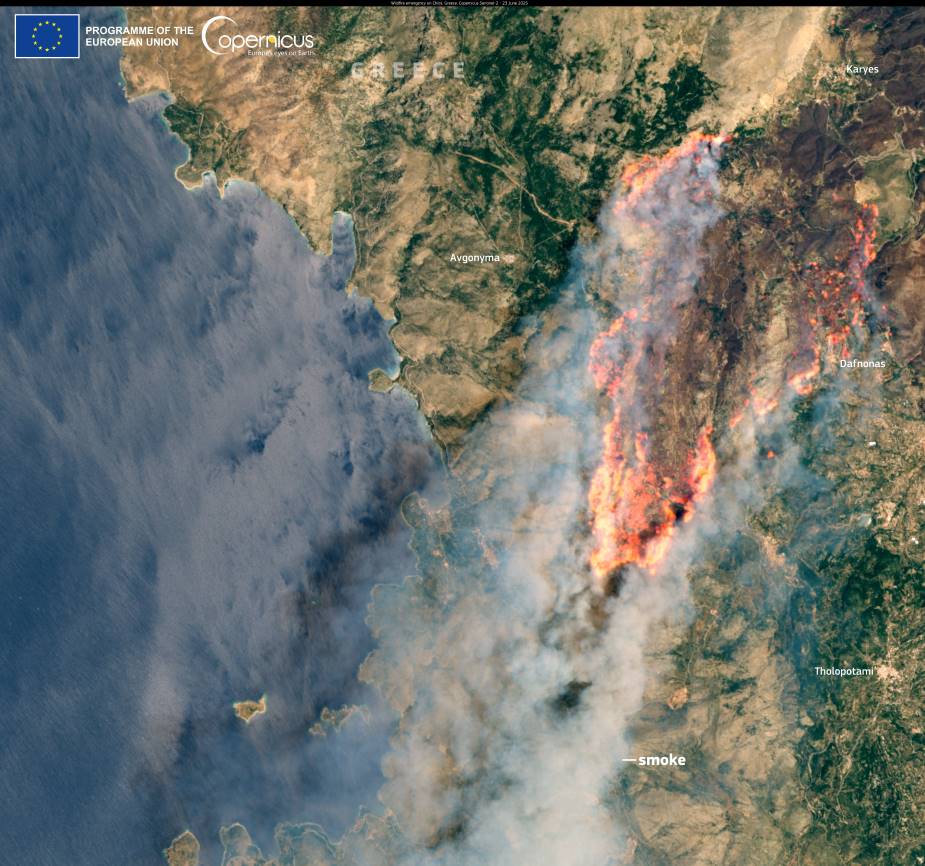A new international study led by the Institute of Natural Resources and Agrobiology of Seville (IRNAS-CSIC) under the Spanish National Research Council (CSIC) has revealed a significant decline in the ability of terrestrial ecosystems to withstand global change as the number of environmental stressors increases, particularly when these stressors persist over time.
The findings, published in the journal Nature Geoscience, underscore the growing vulnerability of ecosystems in the face of escalating global challenges such as climate change and pollution.
The research, spearheaded by the Biodiversity and Ecosystem Functioning Laboratory (BioFunLab) at IRNAS-CSIC, involved the analysis of 1,023 global change experiments conducted worldwide.
Collaborating with ten international institutions, including the University of Alicante, the German Centre for Integrative Biodiversity Research (iDiv) Halle-Jena-Leipzig, the Northeast Forestry University of China, the Massachusetts Institute of Technology (MIT) in the United States, and the University of New South Wales in Australia, the study provides crucial insights into how environmental stressors impact ecosystem resilience.
“Terrestrial ecosystems are subject to a myriad of climate change and environmental degradation factors, including global warming, drought processes, atmospheric pollution, fires or overgrazing among many others,” explains Manuel Delgado Baquerizo, leader of BioFunLab and senior author of the study.
“We know that these global change factors impact the ability of our ecosystems to provide services such as carbon sequestration or soil fertility that are key in the fight against climate change and in food production. What we didn’t know is how an increase in the number of global change factors affects the ability of ecosystems to resist this global change.”
The study’s findings are particularly concerning as they highlight the compounding effects of multiple global change factors on ecosystems.
Through an extensive analysis of 15 years of data from an experiment conducted in the United States, the researchers found that prolonged exposure to these stressors, such as elevated CO2 levels and increased temperatures, gradually erodes ecosystems’ ability to sustain crucial services like primary productivity. This decline in productivity is vital for maintaining soil fertility, which is essential for food production and other ecosystem services.
“Our results show that prolonged exposure to multiple drivers of global change, such as increased CO2 and warming, gradually decreases the capacity of ecosystems to maintain essential services such as primary productivity,” says Emilio Guirado, co-author of the study from the University of Alicante. “This is crucial to understand the limitations we will face in vital resources such as soil fertility.”
The study also reveals that the impact of increasing global change factors is more pronounced on the capacity of ecosystems to provide services than on biodiversity itself.
Guiyao Zhou, lead author of the article and member of BioFunLab, explains: “Our study shows that increasing global drivers of change will significantly reduce the resilience of ecosystems to global change. However, this effect is much more pronounced on the ability of ecosystems to provide us with ecosystem services than on the biodiversity of our ecosystems.”
These findings underscore the urgent need for global efforts to mitigate environmental stressors and safeguard the future of terrestrial ecosystems. As the planet continues to grapple with the effects of climate change and human-induced environmental degradation, the resilience of ecosystems will be a critical factor in sustaining life and the services on which humanity depends.
Journal Reference:
Zhou G., Eisenhauer N, Terrer C., Eldridge DJ, Duan H, Guirado E., Berdugo M., Zhou L., Liu S., Zhou X., Delgado-Baquerizo M, ‘Resistance of ecosystem services to global change weakened by increasing number of environmental stressors’, Nature Geoscience (2024). DOI: 10.1038/s41561-024-01518-x
Article Source:
Press Release/Material by Spanish National Research Council (CSIC)
Featured image credit: wirestock | Freepik




